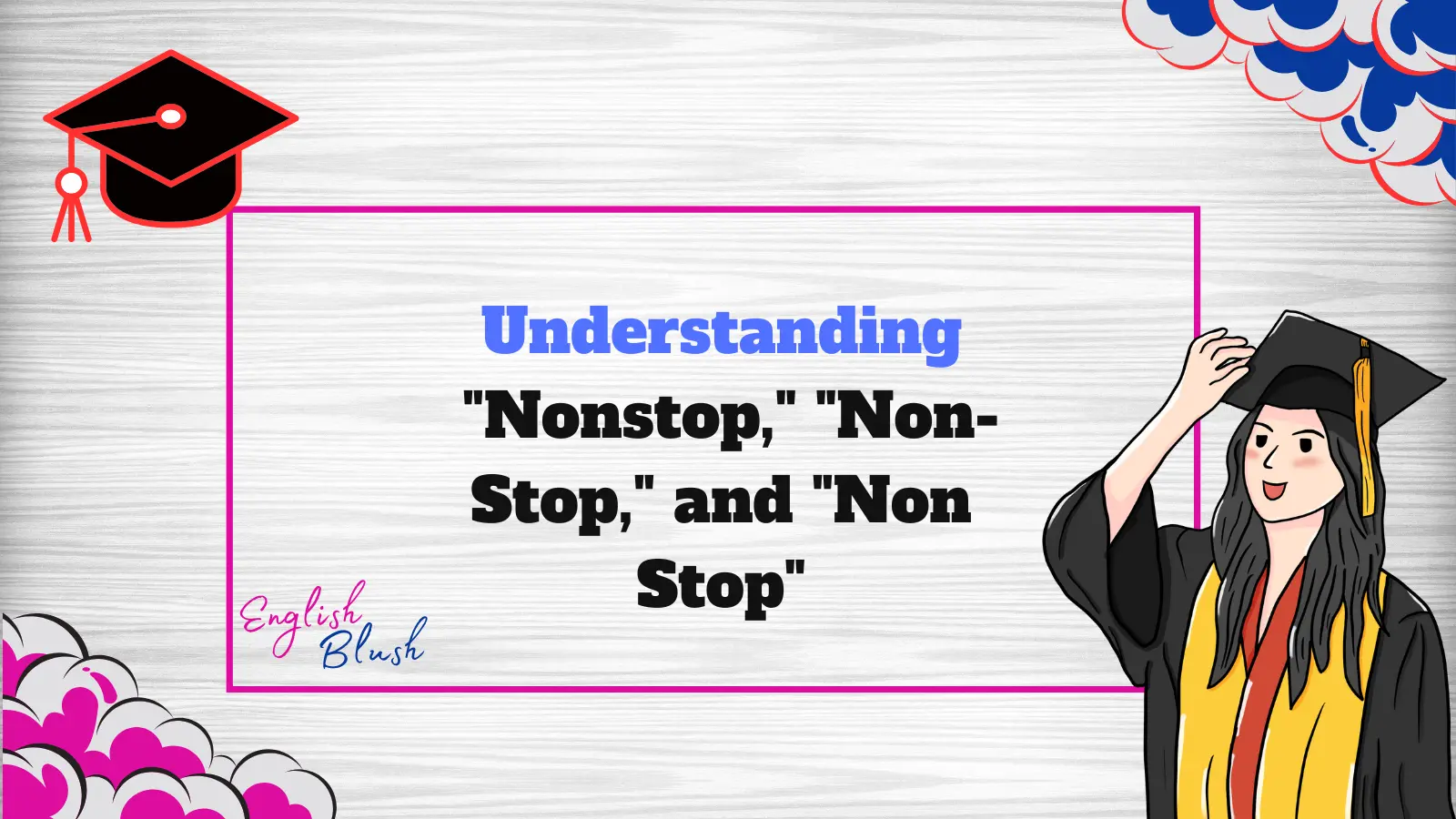Words like “nonstop” are versatile and can take on different forms and meanings depending on their usage in a sentence. This article explores the nuances of “nonstop,” its alternate forms, correct grammar usage, and common errors. We’ll also delve into similar distinctions with “one-third” to highlight grammar and punctuation rules. By the end, you’ll have a clear understanding of how to use these terms correctly.
Forms and Meanings of Nonstop
- Nonstop (adjective or adverb): This refers to something that happens continuously without stopping.
Example: “The nonstop flight to New York saved us time.” - Non-Stop (adjective): Mainly used in British English, the hyphenated form emphasizes clarity.
Example: “It was a non-stop journey across the mountains.” - Non Stop (incorrect): Separating the word often results in improper usage or confusion.
Example: “The bus ran non stop to the station.” (Incorrect)
Examples of Correct and Incorrect Usages
As an Adjective
- Correct: The nonstop train service is convenient.
Incorrect: The non stop train service is convenient. - Correct: We enjoyed the non-stop entertainment throughout the flight.
Incorrect: We enjoyed the nonstop entertainment throughout the flight.
As an Adverb
- Correct: He worked nonstop to meet the deadline.
Incorrect: He worked non-stoply to meet the deadline. - Correct: The plane flew nonstop from Paris to Rome.
Incorrect: The plane flew non stop from Paris to Rome.
Using One Third, One-Third, and One Third
Now, let’s consider the phrase “one third” and how it functions in various contexts.
- One-third (noun or adjective): This hyphenated form is correct when describing a fraction or modifying another word.
Example: “One-third of the class attended the event.” - One third (verb phrase): When used in a verb phrase (e.g., “one third of a task”), it emphasizes the action rather than the fraction itself.
Example: “They finished one third of the work.” - One Third (incorrect): Avoid capitalizing this unnecessarily or separating it without hyphenation where needed.
Example: “One Third of the pie is left.” (Incorrect)
Examples of Correct and Incorrect Usages
As a Noun
- Correct: One-third of the land is farmland.
Incorrect: One third of the land is farmland.
As a Verb Phrase
- Correct: The group will complete one third of the survey today.
Incorrect: The group will complete one-third of the survey today.
As an Adjective
- Correct: A one-third share was given to each sibling.
Incorrect: A one third share was given to each sibling.
Capitalization Errors
- Correct: One-third of the pie is gone.
Incorrect: One Third of the pie is gone.
UK vs. US English: Consistency in Usage
British and American English generally agree on the rules for these terms, though minor differences arise in preferences:
- British English often uses non-stop for clarity, while nonstop is more common in American English.
- For “one-third,” the rules remain consistent across both versions of English.
Importance of Following Grammar Rules
Adhering to proper grammar enhances communication. In academic writing, professional communication, and even casual conversation, small errors can lead to misunderstandings. Using incorrect forms like “non stop” or “one third” without understanding context can confuse the reader.
For example:
- Saying “non stop events” might make it unclear whether you mean events that pause but frequently occur or events that truly don’t stop.
- Writing “One Third” distracts readers from focusing on the actual fraction.
Conclusion
- Use nonstop for most scenarios in US English, and consider non-stop in UK English.
- Avoid separating “nonstop” into “non stop,” as it is incorrect.
- Use one-third when referencing fractions or as an adjective and maintain capitalization and hyphenation rules.
- Be consistent, especially when writing for different audiences in the US or UK.





